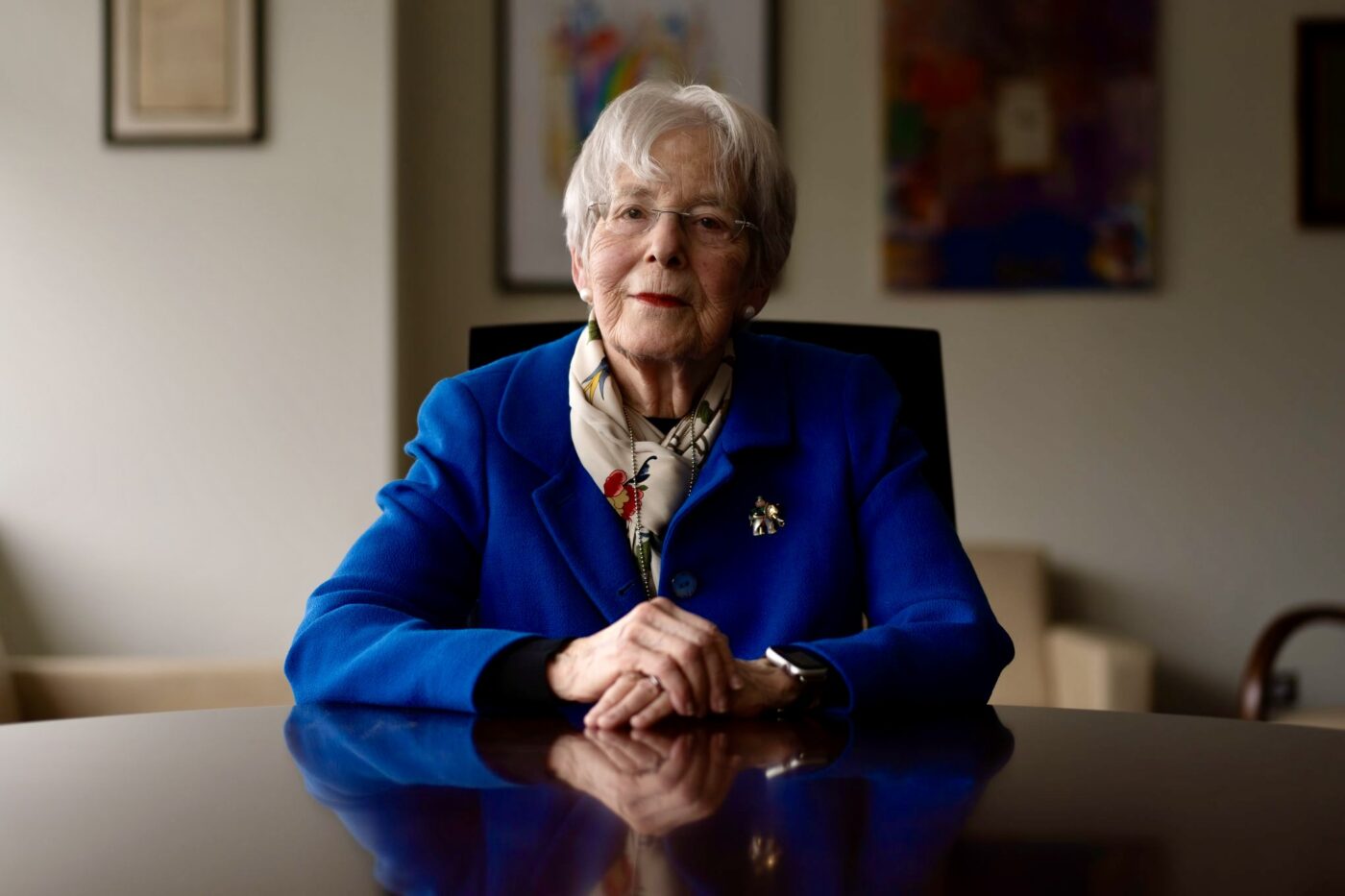The rising cost of medical education in the United States has become a significant barrier for many aspiring doctors. According to the Association of American Medical Colleges (AAMC), the average medical student graduates with a debt exceeding $200,000. This financial burden can deter many qualified candidates from pursuing a career in medicine. However, a growing number of medical schools are now offering tuition-free education, alleviating this financial strain and opening doors to a more diverse and equitable future in healthcare.
Several pathways exist to make medical school more affordable, including tuition-free programs and tuition free medical schools offering generous financial aid. While only a few medical schools offer free tuition to all students, many others provide substantial scholarships or need-based aid, making a debt-free medical degree a realistic goal for some. Here we will examine both tuition-free options and medical schools with significant financial support, as well as other strategies to make medical school more accessible.
Top 9 Tuition-Free Medical Schools in the U.S.
In response to the escalating costs of medical education, several institutions have pioneered tuition-free medical school programs to alleviate the financial burden on students. These initiatives aim to make medical education more accessible and allow future physicians to pursue their careers without the constraints of debt. Below is a list of the top 9 tuition-free medical schools in the United States:
- Uniformed Services University of the Health Sciences (USUHS)
- NYU Grossman School of Medicine
- Kaiser Permanente Bernard J. Tyson School of Medicine
- Duke University School of Medicine
- Emory University School of Medicine
- Weill Cornell Medicine
- Cleveland Clinic Lerner College of Medicine
- Washington University School of Medicine in St. Louis
- Albert Einstein College of Medicine
Each of these institutions has implemented innovative programs to reduce the financial burden on students, allowing them to focus on their education and future careers without the constraints of debt.
Medical school tuition in the United States has been rising steadily, creating significant financial challenges for students. According to recent analyses, the average cost of attending medical school can exceed $200,000.
This substantial financial burden often leads to high levels of student debt, impacting career choices and long-term financial stability. For a detailed breakdown of medical school costs in the U.S. and Canada, read more about Medical School Tuition in the U.S. and Canada and The Cost of Medical School. These resources provide comprehensive insights into the financial aspects of medical education, helping prospective students plan and manage their educational expenses effectively.
While the pursuit of a medical degree is often accompanied by the burden of student debt, several promising options exist for aspiring physicians. The Uniformed Services University of the Health Sciences (USUHS), NYU Grossman School of Medicine, and Cleveland Clinic Lerner College of Medicine stand out as tuition-free options. USUHS provides this in exchange for military service, while NYU Grossman and CCLCM offer scholarships to all students, with the latter focusing on training physician-investigators.
Other institutions, like Kaiser Permanente Bernard J. Tyson School of Medicine, have offered tuition-free education to initial classes, but future funding is uncertain. Weill Cornell Medicine aims for all students to graduate debt-free through need-based aid, though not guaranteed. Washington University in St. Louis, Duke University, and Emory University provide full-tuition merit-based scholarships for select high-achieving students.
Tuition-Free Schools
- Uniformed Services University of the Health Sciences (USUHS): Truly tuition-free in exchange for a military service commitment.
- NYU Grossman School of Medicine: Currently offers full-tuition scholarships to all students, regardless of need.
- Cleveland Clinic Lerner College of Medicine: Offers full-tuition scholarships to all students in its specific physician-investigator program.
Schools with Generous Financial Aid
- Kaiser Permanente Bernard J. Tyson School of Medicine: The Kaiser Permanente Bernard J. Tyson School of Medicine offers full-tuition scholarships to its first six cohorts (2020-2025). This waiver covers all tuition and fees for each cohort for all four years of enrollment. Future funding beyond the cohort of 2025 has not been specified, so prospective students should stay updated on potential changes.
- Weill Cornell Medicine: Offers need-based financial aid, aiming for all students to graduate debt-free, but not guaranteed for everyone.
- Washington University School of Medicine in St. Louis: Offers full-tuition scholarships through a competitive program (Annika Rodriguez Scholars Program) based on merit and need.
- Duke University School of Medicine: Offers some full-tuition merit-based scholarships but not to all students.
- Emory University School of Medicine: Offers some full-tuition merit-based scholarships but not to all students.
- Albert Einstein College of Medicine: Offers full coverage of tuition and fees for all M.D. students.
Notably, Albert Einstein College of Medicine has taken a significant step by offering full tuition coverage to all M.D. students, thanks to a generous endowment. While not all schools listed are universally tuition-free, free tuition medical schools showcase a growing movement towards greater affordability and accessibility in medical education. Now, let’s take a look at the medical schools distinguished by their free tuition model.

Tuition Free Medical Schools - Uniformed Services University of the Health Sciences (USUHS) USU
The Uniformed Services University of the Health Sciences (USUHS), located in Bethesda, Maryland, is a unique institution offering a tuition-free medical education in exchange for service in the U.S. Armed Forces. USUHS is dedicated to preparing graduates to serve as medical officers in the Army, Navy, Air Force, and Public Health Service. The university was established in 1972 to ensure a steady stream of highly trained medical professionals ready to meet the needs of the military and the nation.
Admission Requirements
Admission to USUHS is highly competitive, with applicants required to meet rigorous academic standards and demonstrate a commitment to service. Prospective students must:
- Be U.S. citizens.
- Hold a bachelor’s degree from an accredited institution.
- Have completed prerequisite coursework in biology, chemistry, physics, and mathematics.
- Submit MCAT scores.
- Undergo a comprehensive interview process.
- Pass a physical examination and background check.
Service Obligation
Students at USUHS receive a full-tuition scholarship, a salary, and benefits as active-duty service members. In return, they incur a service obligation:
- Seven years of active duty service after residency training.
- Five years of service for Public Health Service officers.
Unique Benefits
- Full salary and benefits during medical school.
- Guaranteed employment post-graduation.
- Specialized training in military medicine.
USUHS provides numerous benefits, including a full salary and benefits during medical school, guaranteed employment post-graduation, and specialized training in military medicine. The supportive environment and access to state-of-the-art medical facilities ensure that students receive top-notch education tailored to military-specific medical challenges, such as combat casualty care, tropical diseases, and disaster response. This comprehensive training prepares graduates to effectively handle the unique medical situations they will encounter in their service careers.
Learn More: USUHS Overview and Admission Requirements

NYU Grossman School of Medicine - Tuition Free Medical Schools
The NYU Grossman School of Medicine, located in New York City, is renowned for its innovative curriculum and commitment to reducing the financial burden on medical students. In 2018, NYU made headlines by announcing that it would offer full-tuition scholarships to all current and future medical students, regardless of need or merit. This groundbreaking initiative is part of NYU’s mission to make medical education more accessible and to enable students to pursue their passions without the constraint of debt.
Admission Requirements
Admission to NYU Grossman School of Medicine is highly selective. Prospective students must demonstrate exceptional academic achievement, strong MCAT scores, and a commitment to the medical profession. The application process includes:
- Completion of a bachelor’s degree.
- Prerequisite coursework in biology, chemistry, and physics.
- Submission of MCAT scores.
- Participation in multiple mini-interviews (MMIs).
- Engagement in research, clinical experience, and community service.
Scholarship Program
NYU’s full-tuition scholarship program is funded through endowments and philanthropic contributions. The scholarship covers the $55,000 annual tuition cost, significantly reducing the financial burden on students.
Impact on Students
The full-tuition scholarship program has had a profound impact on NYU Grossman students:
- Reduced financial stress: Students can focus more on their studies and less on financial concerns.
- Greater freedom in specialty choice: Graduates are less likely to choose higher-paying specialties solely to repay loans.
- Increased diversity and applications: The program has attracted a broader range of applicants from diverse backgrounds.
The NYU Grossman School of Medicine’s full-tuition scholarship program has revolutionized medical education by removing financial barriers. This initiative allows students to focus on their studies and pursue their medical careers without the burden of debt. By attracting a diverse range of applicants and providing them with greater freedom in specialty choice, NYU Grossman fosters an environment where future physicians can thrive and innovate in their fields.
Learn More: NYU Grossman School of Medicine Overview

Kaiser Permanente Bernard J. Tyson School of Medicine
The Kaiser Permanente Bernard J. Tyson School of Medicine, located in Pasadena, California, opened its doors in 2020 with a mission to provide high-quality, innovative medical education while reducing student debt. Named in honor of the late Kaiser Permanente CEO Bernard J. Tyson, the school initially offered full-tuition scholarships to its first five cohorts of students.
Admission Requirements
Admission to Kaiser Permanente School of Medicine is highly competitive. Applicants must demonstrate academic excellence, strong MCAT scores, and a commitment to community health and preventive care. The application process includes:
- Completion of a bachelor’s degree.
- Prerequisite coursework in the sciences.
- Submission of MCAT scores.
- Participation in multiple mini-interviews (MMIs).
- Experience in healthcare and community service.
Tuition-Free Model
The Kaiser Permanente Bernard J. Tyson School of Medicine offers a full-tuition scholarship program designed to alleviate financial barriers and attract a diverse group of students dedicated to the school’s mission of community health. This program waives all tuition and fees, including disability insurance, for students entering from 2020 through 2025, covering the annual tuition cost of $61,494 for all four years of the MD program. While students are responsible for their living expenses, those with demonstrated financial need may receive substantial grant aid to offset these costs. Additionally, the school provides a waiver for the cost of a health plan from Kaiser Permanente for the first six cohorts, unless students have an equivalent health plan. Read here for further information.
Potential Continuation
The initial full-tuition scholarships were made possible through the Kaiser Foundation’s funding. The school aims to continue this support through ongoing fundraising efforts and partnerships.
Impact on Students
- Reduced financial stress: Students can pursue their medical education without the worry of accumulating debt.
- Commitment to community health: The program attracts students who are passionate about serving underserved communities.
- Innovative curriculum: The school’s curriculum emphasizes preventive care, health equity, and community engagement.
The Kaiser Permanente Bernard J. Tyson School of Medicine stands out for its commitment to community health and preventive care. The full-tuition scholarships for the first five cohorts exemplify the school’s dedication to reducing financial barriers and attracting students passionate about serving underserved communities. This approach not only alleviates financial stress but also prepares students to become leaders in health equity and community engagement.
Learn More: Kaiser Permanente School of Medicine Overview
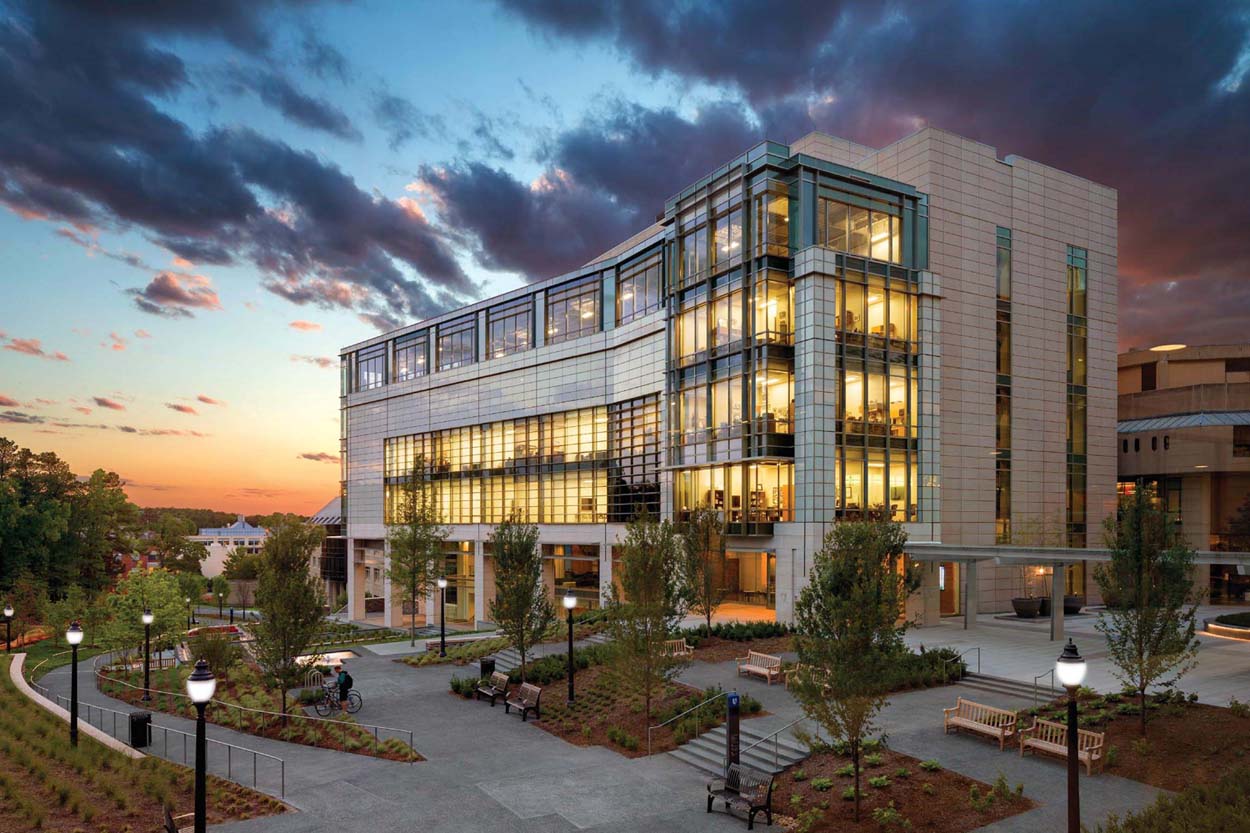
Duke University School of Medicine
Duke University School of Medicine, located in Durham, North Carolina, is one of the top-ranked medical schools in the country. Known for its research excellence and innovative curriculum, Duke offers several merit-based scholarships that cover full tuition for exceptional students.
Admission Requirements
Admission to Duke University School of Medicine is extremely competitive. Prospective students must demonstrate academic excellence, high MCAT scores, and a strong commitment to medicine. The application process includes:
- Completion of a bachelor’s degree.
- Prerequisite coursework in biology, chemistry, physics, and mathematics.
- Submission of MCAT scores.
- Participation in multiple mini-interviews (MMIs).
- Experience in research, clinical practice, and community service.
Full-Tuition Scholarships
Duke offers several prestigious scholarships, including the Duke Medical Scholars Program, which provides full tuition to select students based on academic merit, leadership qualities, and community service.
Impact on Students
- Reduced financial burden: Scholarship recipients can focus on their education without the stress of tuition costs.
- Freedom in career choice: Graduates are free to pursue their desired specialties without the pressure of loan repayment.
- Enhanced diversity: Scholarships help attract a diverse range of applicants.
Duke University School of Medicine’s full-tuition scholarships enable exceptional students to pursue their medical education without financial stress. These scholarships provide the freedom to explore diverse career paths and contribute to the medical field without the constraint of debt. Duke’s commitment to supporting its students financially enhances the diversity and excellence of its medical program.
Learn More: Duke University School of Medicine Overview
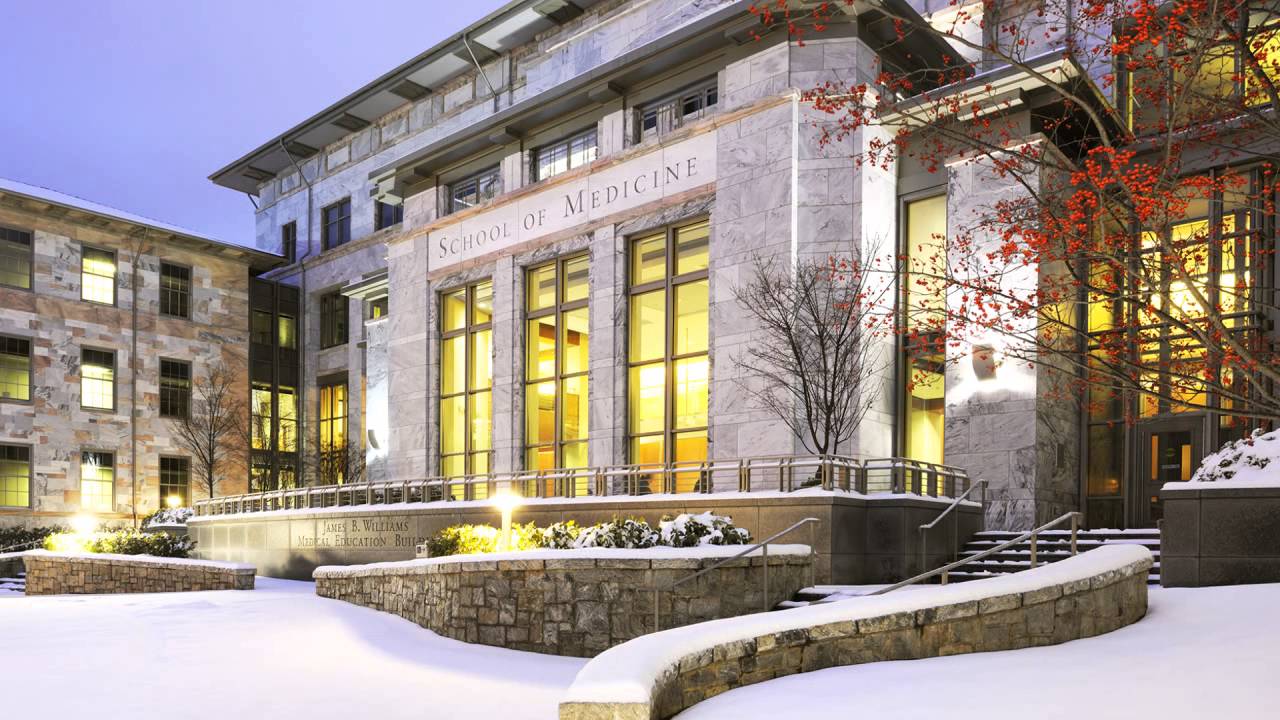
Emory University School of Medicine
Emory University School of Medicine, located in Atlanta, Georgia, is renowned for its strong emphasis on research, clinical care, and medical education. Emory offers numerous scholarships, including the Woodruff Fellowships, which cover full tuition and fees for outstanding students.
Admission Requirements
Admission to Emory University School of Medicine is highly competitive. Applicants must showcase academic excellence, high MCAT scores, and a commitment to healthcare. The application process includes:
- Completion of a bachelor’s degree.
- Prerequisite coursework in the sciences.
- Submission of MCAT scores.
- Participation in multiple mini-interviews (MMIs).
- Engagement in research, clinical experience, and community service.
Full-Tuition Scholarships
The Woodruff Fellowships at Emory provide full tuition and fees to students who demonstrate exceptional academic and extracurricular achievements. These scholarships are highly competitive and are awarded based on merit.
Impact on Students
- Reduced financial stress: Scholarship recipients can focus on their education without the burden of tuition fees.
- Increased opportunities: Graduates have the freedom to pursue various career paths without the constraint of debt.
- Enhanced diversity: Scholarships help attract a wide range of applicants from different backgrounds.
Emory University School of Medicine’s full-tuition scholarships, including the prestigious Woodruff Fellowships, reduce financial stress for outstanding students. These scholarships open doors to numerous opportunities, allowing graduates to pursue various career paths and contribute significantly to the medical field. Emory’s emphasis on research, clinical care, and education fosters a rich learning environment that attracts diverse and talented applicants.
Learn More: Emory University School of Medicine Overview
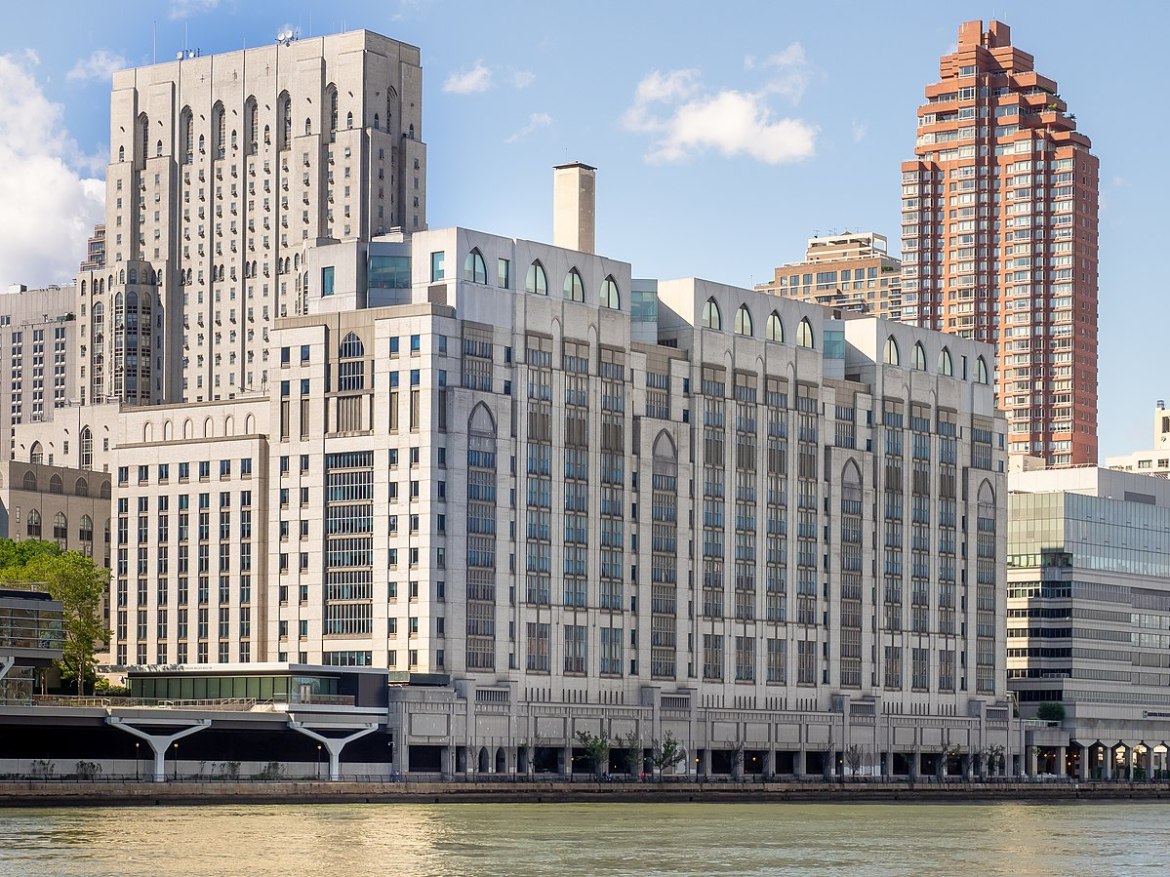
Weill Cornell Medicine
Weill Cornell Medicine, located in New York City, offers a combination of need-based financial aid and scholarships to help students manage the cost of their medical education. The school is dedicated to making medical education accessible to all qualified students, regardless of their financial background.
Admission Requirements
Admission to Weill Cornell Medicine is competitive, with applicants required to meet high academic standards and demonstrate a commitment to medicine. The application process includes:
- Completion of a bachelor’s degree.
- Prerequisite coursework in biology, chemistry, and physics.
- Submission of MCAT scores.
- Participation in multiple mini-interviews (MMIs).
- Experience in research, clinical practice, and community.
Weill Cornell Medicine’s commitment to providing need-based financial aid and scholarships ensures that all qualified students can access a top-tier medical education. This financial support enables students to focus on their academic and professional goals without the burden of tuition costs. By making medical education accessible to students from various financial backgrounds, Weill Cornell fosters an inclusive and supportive academic environment.
Learn More: How to Get Into Weill Cornell Medicine: The Definitive Guide (2024)

Cleveland Clinic Lerner College of Medicine
The Cleveland Clinic Lerner College of Medicine (CCLCM), part of Case Western Reserve University, offers a unique tuition-free education focused on training physician-investigators. Established in 2002, CCLCM aims to develop future leaders in medical research, clinical care, and education.
Admission Requirements
Admission to CCLCM is highly competitive. Prospective students must:
- Hold a bachelor’s degree from an accredited institution.
- Complete prerequisite coursework in biology, chemistry, and physics.
- Submit MCAT scores.
- Participate in multiple mini-interviews (MMIs).
- Demonstrate a strong commitment to research and clinical care.
Scholarship Program
CCLCM provides full-tuition scholarships to all students, alleviating the financial burden of medical education. This initiative is supported by the Cleveland Clinic and endowment funds.
Impact on Students
- Reduced Financial Stress: Students can focus on their studies and research without worrying about tuition costs.
- Research Opportunities: The program emphasizes research, preparing students for careers in academic medicine and clinical research.
- Diverse Specialties: Graduates have the flexibility to pursue various medical specialties without the pressure of loan repayment.
The Cleveland Clinic Lerner College of Medicine’s tuition-free education model emphasizes the importance of training physician-investigators. By alleviating the financial burden of medical education, CCLCM allows students to focus on their studies and research, preparing them for influential careers in academic medicine and clinical research. This approach ensures that graduates are well-equipped to advance medical knowledge and improve patient care.
Learn More: Cleveland Clinic Lerner College of Medicine

Washington University School of Medicine in St. Louis
Washington University School of Medicine in St. Louis (WUSM) is renowned for its research excellence and comprehensive medical education. The school offers substantial financial aid packages, including full-tuition scholarships for select students.
Admission Requirements
Admission to WUSM is extremely competitive. Prospective students must:
- Hold a bachelor’s degree from an accredited institution.
- Complete prerequisite coursework in biology, chemistry, physics, and mathematics.
- Submit MCAT scores.
- Participate in multiple mini-interviews (MMIs).
- Demonstrate a strong commitment to medicine and community service.
Scholarship Program
WUSM offers the Annika Rodriguez Scholars Program, which provides full-tuition scholarships based on merit and financial need. The scholarship aims to support students with exceptional academic achievements and leadership qualities.
Impact on Students
- Financial Relief: Full-tuition scholarships significantly reduce the cost of medical education.
- Diverse Careers: Graduates can pursue their desired medical specialties without the constraint of student debt.
- Enhanced Diversity: Scholarships attract a wide range of applicants from diverse backgrounds.
Washington University School of Medicine’s full-tuition scholarships provide significant financial relief for select students, allowing them to pursue their medical education without the constraints of debt. These scholarships attract applicants with exceptional academic achievements and leadership qualities, fostering a diverse and talented student body. By supporting students financially, WUSM enables them to focus on their studies and future careers in medicine, contributing to the field without financial barriers.
Learn More: Washington University School of Medicine
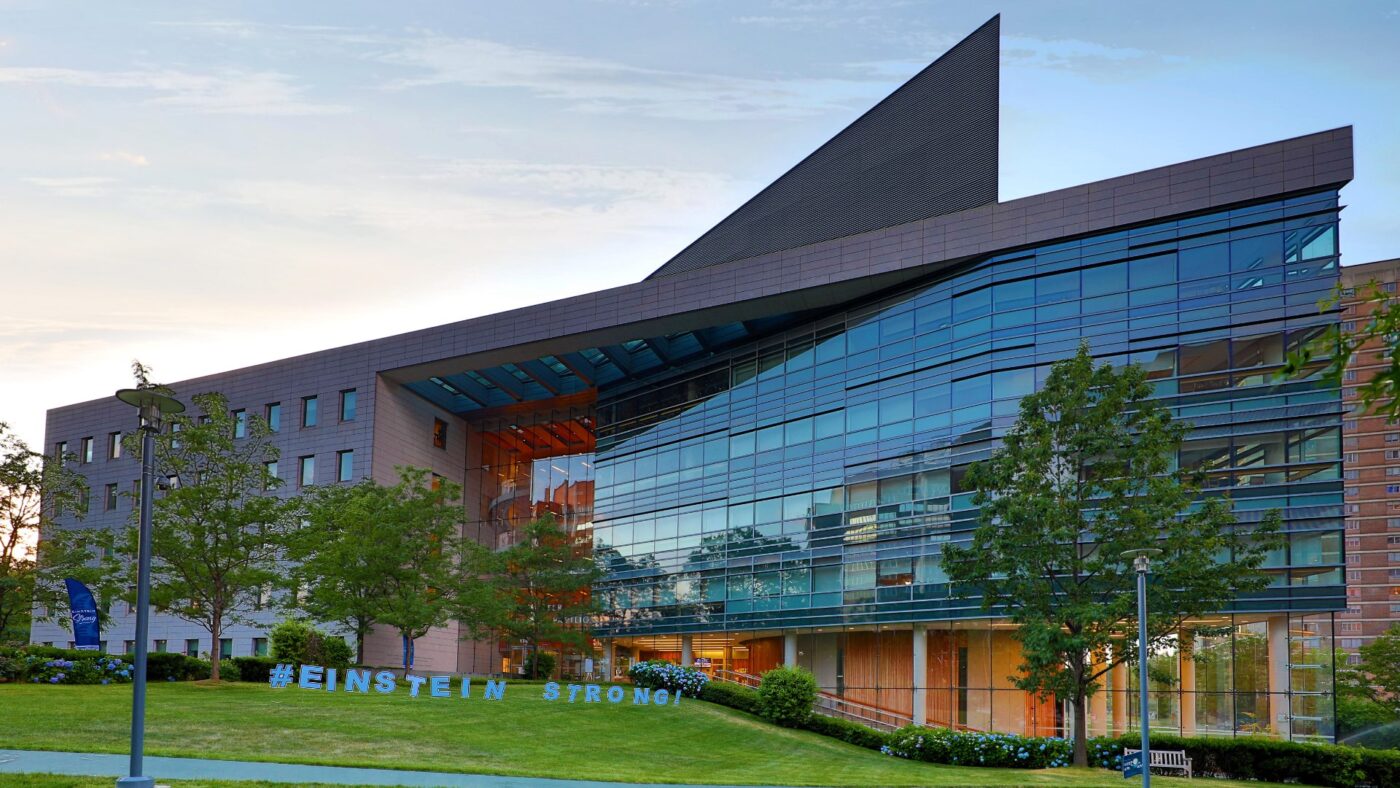
Albert Einstein College of Medicine
Albert Einstein College of Medicine, located in the Bronx, New York, now provides full coverage of tuition and fees for all M.D. students through the David S. and Ruth L. Gottesman Scholarship Fund. This initiative, backed by a historic $1 billion endowment from Ruth Gottesman, significantly reduces the financial burden on students and promotes a diverse student body.
Financial Aid Options
- Scholarships and Grants: Full coverage of tuition and fees for all M.D. students.
- Loan Forgiveness Programs: Available for graduates working in underserved areas or primary care.
- Work-Study Opportunities: Allows students to earn while studying.
Impact of Financial Aid
The financial support alleviates student debt, enabling students to focus on their studies and career goals without financial constraints. This initiative also attracts a diverse student body, fostering a richer educational environment.
Prospective students are encouraged to visit the college’s official financial aid page or contact the admissions office directly for detailed information about financial aid and the latest updates on tuition policies.
For more information, refer to the articles on International Medical Aid:
The financial aid policies at Albert Einstein College of Medicine underscore the institution’s commitment to accessibility and diversity. With full tuition coverage, extensive loan forgiveness programs, and work-study opportunities, the college supports its students in achieving their medical career aspirations without the heavy burden of debt. This progressive approach not only benefits the students but also enriches the medical community by fostering a more inclusive and motivated cohort of future physicians.
Tuition Free Medical Schools and Their Impact on the Medical Community
The emergence of tuition-free medical schools is expected to have a profound impact on the medical community. By making medical education more accessible, these programs are likely to increase the diversity of the medical workforce. This, in turn, can enhance cultural competency and improve patient care outcomes. For instance, programs like the Einstein Medical School Free Tuition and NYU Medical School Free Tuition have been particularly influential in attracting students from various socio-economic backgrounds, thus broadening the scope of cultural perspectives within the medical field.
Enhancing Cultural Competency
Diversity in the medical workforce is essential for providing comprehensive and empathetic care to patients from different backgrounds. Students from tuition-free medical schools are often more representative of the diverse populations they will serve. This diversity helps to bridge the gap in cultural understanding, leading to more effective communication between doctors and patients, and ultimately, better patient outcomes.
Commitment to Public Health
Moreover, graduates from tuition-free medical schools such as the Kaiser Medical School Free Tuition program are more likely to engage in public health initiatives and serve in underserved areas. The financial freedom provided by these programs allows graduates to pursue careers in primary care, rural medicine, and other fields that are typically less lucrative but critically important for public health. This commitment to service is crucial for addressing physician shortages in various regions, particularly in rural and economically disadvantaged areas.
Serving Local Communities
The Bronx Medical School Free Tuition initiative at Albert Einstein College of Medicine, for example, emphasizes serving the local community. By removing the financial burden of tuition, students can focus on providing care to underserved populations in the Bronx, contributing to improved health outcomes in these communities. This model of community-focused education and service is a powerful example of how tuition-free medical schools can positively impact local and national healthcare systems.
Influencing Medical Education Structure
Additionally, tuition-free medical schools are likely to influence the overall structure of medical education. Traditional medical schools may feel pressured to adopt similar tuition-free models to remain competitive and attract top talent. This shift could lead to a broader re-evaluation of how medical education is funded and accessed, potentially making it more affordable for a larger number of students nationwide.
Tuition Free Medical Schools and Shaping the Future of Healthcare
As the landscape of medical education continues to evolve, the impact of these tuition-free medical schools will likely grow, setting a new standard for how medical education is funded and accessed. For aspiring physicians, these programs offer a unique opportunity to pursue their dreams without the weight of financial constraints, ultimately leading to a healthier and more inclusive society. The Kaiser Medical School Free Tuition program, among others, showcases the potential for these initiatives to foster a generation of doctors who are not only skilled but also deeply committed to serving their communities and improving public health outcomes.
Tuition-free medical schools are transforming the future of medical education and healthcare delivery. By removing financial barriers, these institutions are paving the way for a more diverse, equitable, and effective medical workforce, ensuring that quality healthcare is accessible to all. Institutions like NYU, Kaiser Permanente, and Albert Einstein College of Medicine are leading the way in this movement, demonstrating a commitment to making medical education accessible to all. Programs like the NYU Medical School Free Tuition and Einstein Medical School Free Tuition are not only alleviating the financial burden on students but also contributing to a more diverse and equitable healthcare workforce.
Frequently Asked Questions About Tuition-Free Medical Schools
What Medical Schools Are Tuition-Free?
Some medical schools in the U.S. offer tuition-free education to their students. Notable examples include the NYU Grossman School of Medicine, the Kaiser Permanente Bernard J. Tyson School of Medicine, and the Cleveland Clinic Lerner College of Medicine. These programs aim to reduce the financial burden on students and promote careers in various medical specialties without the constraint of debt.
Does NYU Medical School Have Free Tuition?
Yes, NYU Grossman School of Medicine offers full-tuition scholarships to all current and future students. This policy, implemented in 2018, is designed to reduce the financial burden on students and promote greater diversity in the medical field.
Does UCR Medical School Offer Free Tuition?
As of now, the University of California, Riverside (UCR) School of Medicine does not offer free tuition. However, they do provide various financial aid options and scholarships to help students manage the cost of medical education.
How Many Medical Schools in the U.S. Are Tuition-Free?
Several medical schools in the U.S. have implemented tuition-free programs, including NYU Grossman School of Medicine, Kaiser Permanente Bernard J. Tyson School of Medicine, and Cleveland Clinic Lerner College of Medicine. These initiatives are part of broader efforts to reduce the financial burden of medical education.
How to Get Free Medical School Tuition?
To obtain free tuition for medical school, students can apply to programs that offer full-tuition scholarships, such as NYU Grossman School of Medicine and the Cleveland Clinic Lerner College of Medicine. Additionally, students can seek out merit-based and need-based scholarships from other institutions and organizations.
Is NYU Free Medical School Tuition for International Students?
NYU Grossman School of Medicine’s full-tuition scholarship program is available to all students, including international students. This initiative helps reduce financial barriers and promotes a diverse student body.
Is NYU Medical School Free Tuition?
Yes, NYU Grossman School of Medicine offers full-tuition scholarships to all students. This policy, introduced in 2018, aims to alleviate the financial burden of medical education and allow students to pursue their desired specialties without the constraint of debt.
Is Tuition Free at NYU Medical School?
Yes, tuition is free at NYU Grossman School of Medicine for all students due to the full-tuition scholarship program. This initiative, funded by endowments and philanthropic contributions, aims to reduce financial barriers and attract a diverse range of applicants.
Is Tuition Free at Yale Medical School?
As of now, Yale School of Medicine does not offer a tuition-free program. However, Yale provides substantial financial aid packages and scholarships to help students manage the cost of their medical education.
Should All Medical Schools Have Free Tuition?
There is ongoing debate about whether all medical schools should offer free tuition. Proponents argue that it would reduce student debt and promote a more diverse and equitable healthcare workforce, while opponents cite the potential financial challenges and resource constraints for institutions.
When Did NYU Announce That Medical School Is Tuition-Free?
NYU Grossman School of Medicine announced its full-tuition scholarship program in August 2018. This groundbreaking initiative was introduced to alleviate the financial burden on medical students and promote greater accessibility to medical education.
Where Does NYU Medical School Free Tuition Funding Come From?
The funding for NYU Grossman School of Medicine’s tuition-free program comes from endowments and philanthropic contributions. These funds support the full-tuition scholarships provided to all students, helping to alleviate the financial burden of medical education.
Why Is NYU Giving Free Tuition to Medical School?
NYU Grossman School of Medicine offers free tuition to reduce the financial burden on students and promote greater accessibility to medical education. The initiative aims to attract a diverse range of applicants and allow students to pursue their medical careers without the constraint of debt.
Will More Medical Schools Offer Free Tuition?
There is a growing trend among medical schools to explore tuition-free models. As more schools recognize the benefits of reducing student debt and promoting diversity, it is possible that additional institutions will implement similar programs in the future.
Final Thoughts on Tuition-Free Medical Schools in the U.S.
The emergence of tuition-free medical schools in the U.S. represents a significant shift in medical education, aiming to alleviate the financial burden on students and promote a more diverse and inclusive healthcare workforce.
Institutions like the Uniformed Services University of the Health Sciences, NYU Grossman School of Medicine, Kaiser Permanente Bernard J. Tyson School of Medicine, Duke University School of Medicine, Emory University School of Medicine, Weill Cornell Medicine, Cleveland Clinic Lerner College of Medicine, and Washington University School of Medicine have implemented various programs to support students financially.
These initiatives not only reduce financial stress but also allow students to pursue their medical careers and specialties without the constraints of debt, fostering a richer and more motivated cohort of future physicians. As more medical schools recognize the benefits of such models, it is hoped that the trend towards tuition-free education will continue to grow, further democratizing access to medical education and improving the overall quality of healthcare.
How International Medical Aid Can Help
International Medical Aid (IMA) offers comprehensive services to help prospective medical students navigate the complex admissions process. Through personalized medical school application consulting, IMA assists applicants in enhancing their profiles, preparing for interviews, and crafting compelling personal statements. These services are designed to increase the chances of acceptance into top medical schools, including those with tuition-free programs. By leveraging IMA’s expertise, aspiring doctors can better position themselves for success in their medical education and future careers.
Moreover, IMA provides valuable medical internship opportunities that give prospective medical students hands-on experience in diverse healthcare settings. These internships, located in various international locations, offer participants the chance to work alongside experienced medical professionals, gaining practical skills and exposure to different medical practices and cultures. This real-world experience can be pivotal in strengthening medical school applications and preparing students for their future careers in medicine.


